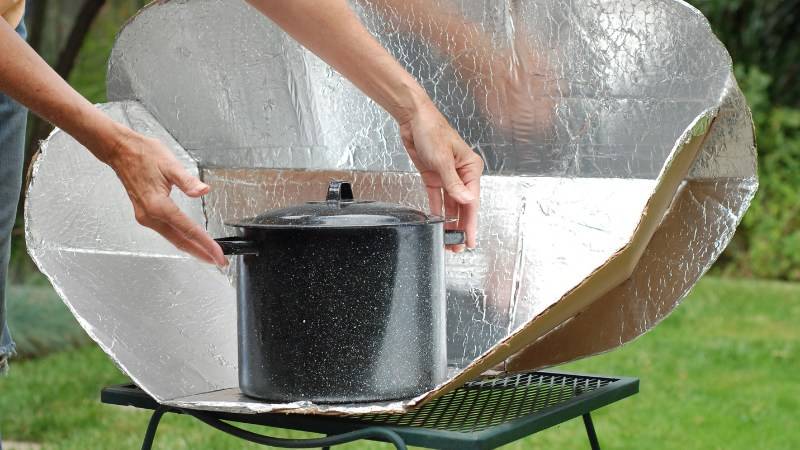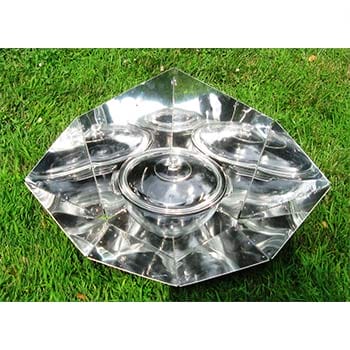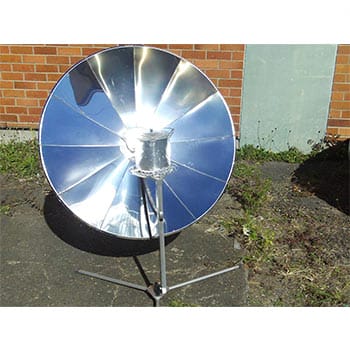Solar Cooking Stoves use solar thermal energy, typically via reflective panels, parabolic mirrors, or solar ovens, to cook food without the need for wood, charcoal, or fossil fuels. These stoves reduce indoor air pollution, deforestation, and greenhouse gas emissions while improving health and energy access, especially in off-grid or resource-scarce communities.
They come in various forms, such as box cookers, panel cookers, or vacuum tube stoves, and can reach cooking temperatures between 100–200°C. Light weight, low-cost, and easy to operate, solar stoves are particularly impactful for women and children who often bear the health and labor burdens of traditional cooking.
Deployed through NGO initiatives, development programs, and grassroots innovation movements, they are widely used for household, educational, and emergency cooking needs in sunny climates.






